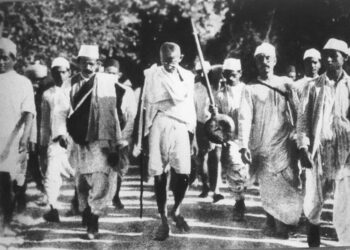In recent years, political polarization has become a defining feature of democracies around the world. The term refers to a situation where individuals and groups become more entrenched in their opposing political beliefs, leading to increased hostility and division. This phenomenon is not new, but it has intensified in recent years, with the rise of social media and the increasing influence of special interest groups. In this article, we will examine the current state of political polarization in democracies around the world and its impact on the functioning of these societies.
The United States
In the United States, political polarization has reached historic levels, with political polarization affecting all aspects of society, from politics to media to education. The two major political parties, the Republicans and Democrats, have become increasingly entrenched in their positions and are less likely to compromise. This has led to political gridlock, where the government is unable to pass legislation and make meaningful changes. The result is a disillusioned public and a growing sense of frustration and anger among the citizenry. The situation is exacerbated by the rise of media echo chambers and the increasing influence of special interest groups, which have further entrenched individuals in their political beliefs.
Europe
Political polarization is also affecting many democracies in Europe. In some countries, such as the UK and France, political polarization has been fueled by immigration and cultural issues, leading to the rise of far-right nationalist parties. In other countries, such as Spain and Italy, political polarization has been driven by economic concerns, leading to the rise of left-wing populist movements. In both cases, the result has been increased division and a growing sense of frustration among the public.
Asia
In Asia, political polarization is also affecting many democracies. In India, the rise of Hindu nationalism has led to increased political polarization, with minorities and those opposing the ruling party becoming increasingly marginalized. In South Korea, political polarization has been driven by the country’s division into two politically distinct regions, with each region becoming increasingly entrenched in its own political beliefs. In Japan, political polarization has been fueled by the country’s aging population and declining economic prospects, leading to the rise of populist movements.
Africa
In Africa, political polarization is also affecting many democracies. In countries such as Kenya, Nigeria, and South Africa, political polarization has been fueled by ethnic and cultural tensions, leading to the rise of nationalist movements. In other countries, such as Egypt and Ethiopia, political polarization has been driven by economic concerns, leading to the rise of populist movements. In both cases, the result has been increased division and a growing sense of frustration among the public.
Conclusion
In conclusion, political polarization is affecting democracies around the world, leading to increased division and a growing sense of frustration among the public. The rise of social media and the increasing influence of special interest groups have further entrenched individuals in their political beliefs, making it more difficult for governments to find common ground and make meaningful changes. While the situation is complex and there is no easy solution, it is important for democracies to find ways to address this issue, as political polarization threatens the very foundations of these societies. By working together and finding common ground, democracies can overcome this challenge and continue to thrive.









